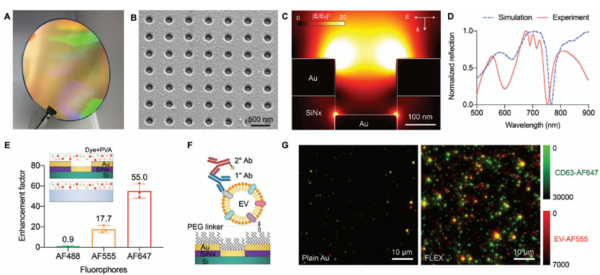A joint team of researchers said on Tuesday that they developed a liquid biopsy technology that can diagnose biliary tract cancer early using extracellular vesicles, with an accuracy 1.3 times higher than conventional methods.

Currently, the diagnosis rate of a standard liquid biopsy CA19-9 test stands at 70 percent. At the time of diagnosis, surgery is possible in 30 percent of cases, leading to poor prognosis.
Liquid biopsy is a non-invasive technology that detects tumor markers in body fluids and diagnoses cancer. Biliary tract cancer also has a high need for liquid biopsy research, but is not easy to develop because there are no specific biomarkers, said the researchers.
The research team led by Professor Jo Jung-hyun of Internal Medicine at Severance Hospital and Professor Im Hyung-soon of Systems Biology at Harvard Medical School derived specific tumor markers from the bile of patients suspected of biliary tract cancer via liquid biopsy.
Extracellular vesicles extracted from normal cells and biliary cancer cells were compared to identify tumor markers. Subsequently, the researchers found high expression of MUC1, EPCAM, and EGFR proteins in extracellular vesicles derived from biliary tract cancer.
Cancer-derived extracellular vesicles are biological substances that have recently been in the spotlight in diagnosing cancer through liquid biopsy because they contain proteins, nucleic acids, and lipids representing cancer cells.
Using the fluorescence-amplified extracellular vessel sensing technology (FLEX) developed by Harvard Medical School, the researchers were able to amplify very small quantities of cancerous extracellular vesicles from mixed body fluids.
After extracting extracellular vesicles from patient bile, the researchers analyzed the expression of three target proteins using FLEX sensor chip technology and confirmed that the target protein was measured higher in the bile of biliary tract cancer patients than in patients with benign diseases.
The liquid biopsy diagnostic technology developed this time boasted higher accuracy of 93 percent compared to the existing liquid biopsy performed on the same 25 patients yielding an accuracy of 69 percent and endoscopic biopsy results producing 71 percent accuracy.
"Together with Harvard Medical School, we succeeded in not just finding biliary cancer diagnostic markers, but also in developing a liquid biopsy technology with higher diagnostic accuracy than conventional methods,” Professor Jo said.
This study was published in the Advanced Science journal on Jan. 25.
Related articles
- NGeneBio to commercialize liquid biopsy MRD test for AML by 2024
- Liquid biopsy expands diagnostic target from cancer to Alzheimer’s
- Severance researchers use blood drop for HCC prognosis, detection, treatment
- Severance leads domestic arrhythmia treatment with patient cases surpassing 25,000
- Severance establishes Asian reference value to aid antiplatelet therapy
- Severance Hospital has performed over 400 ABO incompatible kidney transplants

